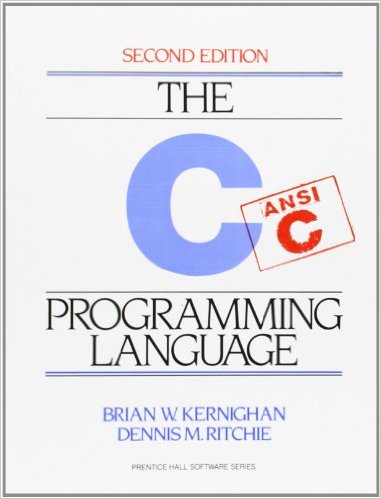

CSCI 2330
Foundations of Computer Systems
Spring 2024
Instructor: Sean Barker
This course will provide a broad, programmer-oriented introduction to how modern computer systems execute programs, store information, and communicate. We examine the hardware and software abstractions and implementations required to go from a program expressed in a high-level programming language like C to the computer actually running the program. Topics include concepts of program compilation and assembly, machine code, data representation and computer arithmetic, caching and the memory hierarchy, processes, and system-level I/O.
Primary course goals include:
CSCI 2101 (Data Structures). Prior knowledge of C is not required or expected.
Instructor: Sean Barker
Office: Searles 220
Phone: 207-798-4220
Email:
Learning Assistants (LAs):
Ross Grundy
Tom Han
Sajel Surati
The regular schedule of office hours (with me) and evening lab hours (with the LAs) will be posted to the #schedule channel in the Slack.
Mondays, Wednesdays, and Fridays, 11:40 am-1:05 pm.
All class meetings are held in Searles 223.
Students are expected to exercise good judgment with respect to masking and attending in-person classes. If you test positive for COVID, you should let me know and pause any in-person attendance (of classes, office hours, and LA sessions). I will work to support you during the time you are isolating.
Students exhibiting mild symptoms of illness (cough, runny nose, etc.) who test negative for COVID and feel well enough to attend class may do so, but are requested as a courtesy to others to mask until symptoms have fully resolved. If you do not feel well enough to attend class, or if you suspect you may have COVID, please let me know.
While no textbooks are required, the following textbook will closely follow much of the class, and is highly recommended if you find having a textbook reference useful:


R. Bryant and D. O'Hallaron. Computer Systems: A Programmer's Perspective, 3rd edition (2015). Available at Amazon or elsewhere.
Note: you should only use the 3rd edition; earlier editions are substantially different.
In addition, you may wish to acquire a reference on the C programming language. As an example, below is the gold standard of C programming books (concise but fairly dense):
B. Kernighan and D. Ritchie. The C Programming Language, 2nd edition (1988). Available at Amazon or elsewhere.
Course requirements include completion of roughly 6 lab assignments, 3 exams (each covering roughly a third of the semester), and attendance and participation during all class and lab sessions. Evaluation will be as follows:
Labs will be a mix of individual and group assignments and will involve a mix of programming and problem solving, broadly defined. Mastering the material covered in class will require rigorously and thoughtfully engaging with the labs, and you should expect to commit a significant amount of time to completing them.
Keep in mind that labs serve primarily to solidify your understanding, while exams (in contrast) serve primarily to demonstrate your understanding. Typically, lab scores in this class are only weakly correlated with exam scores. This should not at all discount the importance of the labs, but rather highlight the importance of how you engage with the labs. You should approach the labs with the objective of rigorously engaging with the conceptual material, rather than simply completing the labs as expediently as possible to get a good score (since such an approach may lead to a lack of real understanding and, as a result, the likelihood of low exam scores). If you feel like you are struggling to understand the lab material (even if you are still completing them and getting good lab scores), come talk to me early so that we can make a plan to assist you!
Each assignment has several important dates: a release date, an acceptance deadline, possibly one or more checkpoints, and a final due date. Further details are given below.
The assignment writeup is posted on the release date. Following this date, the acceptance deadline is the date by which you must form a team (if working in a group) and "accept" the assignment on GitHub, which will initialize your team's repository and allow me to add any team-specific files. Accepting the assignment only takes a minute or two, and the acceptance deadline is normally a few days after the release date. Failure to accept the assignment by the acceptance deadline may result in your inability to work on the assignment for a significant length of time. Avoid introducing unnecessary time crunches by accepting each assignment prior to the deadline!
For some assignments, checkpoints are intermediate deadlines at which time part of the assignment is due. Checkpoints are designed to help you work steadily and seek out assistance early if needed. Checkpoints are ungraded, but failure to meet a checkpoint is a warning that you are not currently on track to comfortably complete the assignment. If you will not or do not meet a checkpoint, you should contact me to indicate (1) where you are in the assignment, (2) what difficulties you are experiencing, and (3) what your plan is to catch up. Extra flexibility with deadlines will not be offered if you have missed checkpoints without contacting me.
To provide reasonable no-questions-asked flexibility with final due dates, you are allotted five flex days for the semester, each of which may be used to submit an assignment up to 24 hours late without penalty. A maximum of three flex days may be applied to a single assignment. For group projects, applying a flex day uses a flex day from each group member's allotment, but can be applied as long as at least one group member has a flex day remaining. Flex days do not need to be applied towards checkpoints, but you should let me know regardless if you will not meet a checkpoint. Beyond the use of your flex days, work will not be accepted after the due date unless I have approved alternate arrangements in advance of the deadline.
We will use Slack to facilitate communication and discussion outside of class. Slack supports both traditional 1-to-1 communication (Direct Messages / DMs) and forum-style discussions with multiple participants. You should prefer messaging me over Slack instead of sending me email, as it is will be easier to keep track of class-related communication and will result in faster responses. You will get set up on Slack as part of the first class assignment.
I will normally respond to Slack messages within one business day (and often sooner). While I may respond to messages outside of regular working hours (evenings, weekends, etc.), you should not expect as such. If I have not responded to a message within two business days, your message may have slipped my inbox, so please feel free to send me a followup reminder.
Collaboration is important and valuable in computer science and some assignments in this course will permit working in a group. This section describes expectations and requirements for completing group work in this course.
For all group work, a single copy of the assignment will be submitted. Group members are expected to fully collaborate on the work, and all group members are responsible for understanding all parts of the assignment. In other words, you should not plan to split the work between the group members and complete the parts independently; instead, the expectation should be that you will work collectively as a group. For programming assignments completed in groups, most or all programming should be done with all group members working in front of a single (physical or virtual) computer. Group members should take turns ‘driving’ (writing code) and ‘directing’ (looking at the code and offering suggestions and feedback).
Note that this model of groupwork means that you should choose your group members carefully and deliberately. In particular, you should consider both your individual working styles and schedules; you cannot be an effective team if you cannot find suitable chunks of time to collaborate synchronously. If you want to work in a group but don't have a partner in mind, let me know and I can try to match you. Working in a group on one assignment does not commit you to working in the same group (or in any group) on future assignments.
As discussed previously, groups must be formed by the assignment acceptance deadline, which is typically a few days after the assignment is released. Accepting the assignment on GitHub constitutes forming your group. Group changes following the acceptance deadline are not normally permitted for the duration of that assignment. However, in the event that your group is not working smoothly for any reason and you do not believe it will be resolved, you should let me know as soon as possible. I can't address a problem that I don’t know exists!
Group reports: Each student working in a group is required to send me an individual group report at the conclusion of each group assignment. Your group report must (1) identify your partner(s), (2) summarize your own contributions to the assignment, and (3) summarize your partners' contributions to the assignment. The purpose of these reports is to provide mutual accountability within your group and to ensure that groups are functioning well. These reports do not need to be overly detailed and are often of the form "I worked with my partner on the entirety of the project together at the same time." Note that I reserve the right to adjust individual grades up or down from the group grade in cases of clear inequity. Group reports should be DM'd to me on Slack and are due at the same time of the assignment itself. Your assignment will not be considered submitted until both the assignment and your group report is received! Your randomly generated Slack string is yajehi (save this).
Please review the Computer Science Collaboration Policy. You are responsible for reading, understanding, and adhering to this policy.
Group work follows the standard guidelines described above, with the exception that collaboration between members within the group is unrestricted and does not need to be cited. Any collaborations outside of the group must follow the standard guidelines.
Any use of generative AI (e.g., systems like ChatGPT) should follow the same basic guidelines as for any other external resources, as detailed in the collaboration policy above. For example, any use of ChatGPT should be cited, and you should not blindly ask ChatGPT for solutions (in the same way that you should not Google for solutions). Even beyond any concerns regarding the Honor Code, doing so is likely to shortchange your learning and lead to poor performance on exams.
In the particular context of this course, generative AI is not likely to be especially useful, and a safe policy is to avoid it. However, if you have a use case in mind that you believe might be legitimate, please ask!
Feedback is welcome on all aspects of the course as we go, either by DM on Slack or by using the anonymous feedback form. Send feedback early, as the sooner that it is received, the more likely it is that adjustments can be made in response.